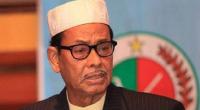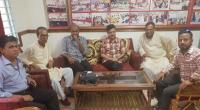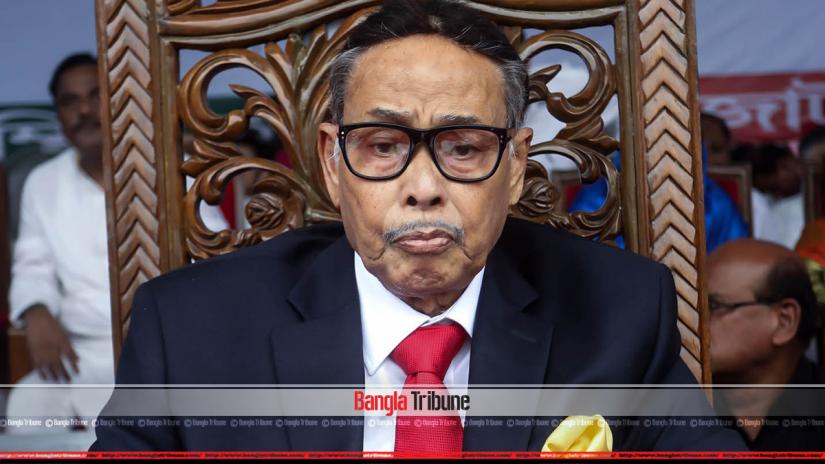 After taking over power on Mar 24, 1982, HM Ershad entered politics on Jan 1, 1986 by forming the Jatiya Party.
After taking over power on Mar 24, 1982, HM Ershad entered politics on Jan 1, 1986 by forming the Jatiya Party.
He remained in power till 1990 but the same year stepped down in the face of a mass-uprising. After parliamentary democracy returned in 1991, Ershad’s importance started to grow and he became entangled in the complex political equations of AL and BNP.
Veteran politicians opine that after coming to power, Ershad masterminded a lot of theatrics and when he realised his political value, began to raise his stakes.
At the end of 1999, Ershad joined BNP chairperson Khaleda Zia led four party alliance though this did not last long. He was arrested in 2001 over the Janata Tower case.
Over the issue of staying or leaving the four party alliance, Jatiya Party splintered.
One section led by Naziur Rahman Manjur joined the four party alliance.
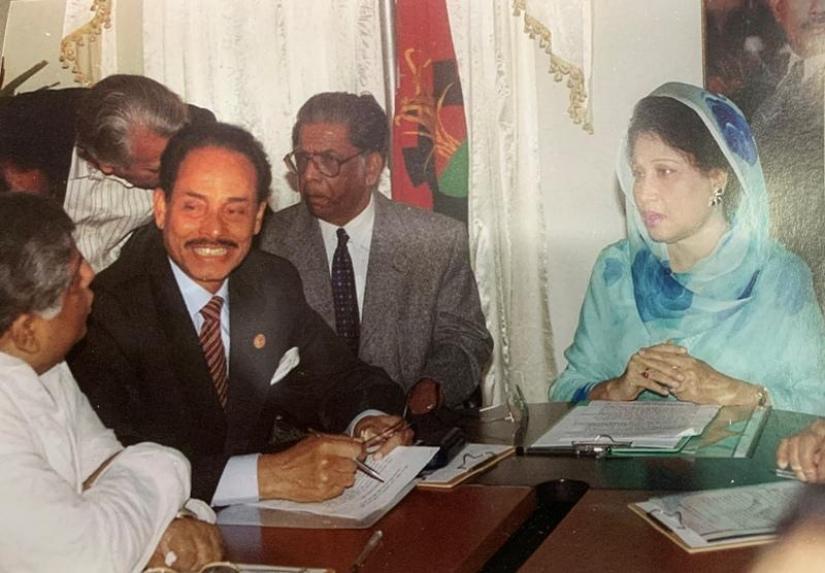 Talking about Ershad’s departure from the four party alliance, Khelafat Majlish Amir Maulana Muhammad Ishaq, said: “Ershad was in jail at that time and his right hand man was Naziur Rahman Manju. The court order was to pay Tk 30 million but the money was not provided by leaders of the alliance who said that they will release Ershad once they are in power; But Ershad was angered by this and, eventually, the party splintered. After release from prison, Ershad left the alliance.”
Talking about Ershad’s departure from the four party alliance, Khelafat Majlish Amir Maulana Muhammad Ishaq, said: “Ershad was in jail at that time and his right hand man was Naziur Rahman Manju. The court order was to pay Tk 30 million but the money was not provided by leaders of the alliance who said that they will release Ershad once they are in power; But Ershad was angered by this and, eventually, the party splintered. After release from prison, Ershad left the alliance.”
In his autobiography, “My work, my life” Ershad said: “our decision was to united to launch a movement and we also made a draft with the alliance; for joining this alliance, I had to face another 4 month 20 days imprisonment but the alliance did not protest my incarceration.”
Talking about leaving the BNP led alliance, he adds: “the experience of carrying out a movement led by Begum Zia was unsavoury because we were denigrated several times; their decision was foisted on us but we accepted everything for the sake of the alliance. In the end, we had no option but to leave.”
Regarding Ershad’s role in the liberation war, teacher, political analyst of Dhaka University, professor Anwar Hossian, says: “Ershad is a political figure in Bangladesh politics and to be frank, he was an opportunist; in 1971, he spent 8 months holiday at home in the then East Pakistan and after his holiday was over, went back to West Pakistan because he was unsure of independence. He was also the head of a tribunal that tried Bengali officers believed to have nationalist tendencies in West Pakistan.”
Therefore, he is a questionable figure in the context of the liberation war, assert professor Anwar.
“To optimize the political scenario of the time, he went into a pact with BNP and anti-liberation force of Jamaat.”
Whenever Ershad made any trenchant comment, cases against him were revived but if he remained silent the cases were allowed to gather dust, added the political analyst.
He never kept his word; in one word, he was a self-seeking person, added professor Anwar.
In 2006, prior to the 9th parliamentary election in 2008, Ershad joined the AL led grand alliance but he wanted to leave before the 10th parliamentary polls.
He wrote in his autobiography: “AL did not show integrity either; we always supported AL as the party which upholds the spirit of the liberation war and AL has come to power for the third consecutive time with the support of JP.”
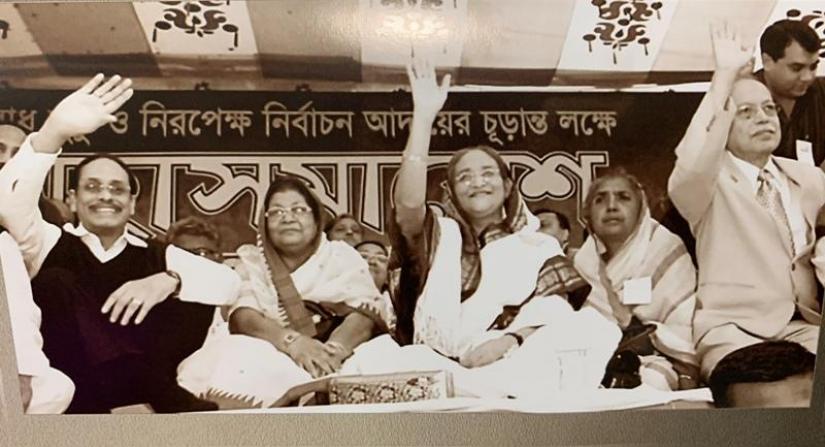 In 2014, before election, he declared that he would be leaving the alliance; fearing an arrest by law enforcers, he threatened to commit suicide on Dec 3, 2013.
In 2014, before election, he declared that he would be leaving the alliance; fearing an arrest by law enforcers, he threatened to commit suicide on Dec 3, 2013.
Later, after missing for 26 hours, he met visiting Indian foreign secretary, Sujata Singh, at his residence. Afterwards, he told the media about his decision of participating in the elections.
In the 8th parliamentary elections in 2001, his party won 14 seats; in 2006, he formed the grand alliance led by AL; in the 9th parliamentary elections in 2008, his party won 27 seat which rose to 34 in the 10th parliamentary elections in 2014.
In the 11th parliamentary polls, he was elected from Rangpur-3 and before his death had been playing the role of the leader of the opposition in parliament.
Led by Ershad, a joint national alliance comprising 58 political parties emerged on May 7, 2018. The allies in the pact are: Jatiya Party, Bangladesh Islami Front, Jatiya Islami Mohajot and Bangladesh Jajtiya Jot. In the alliance, three parties are registered: Jatiya Party, Khelafat Majlish and Bangladesh Islami Front. No allied party for this pact got nomination in the last national election. The alliance is currently stagnant.

